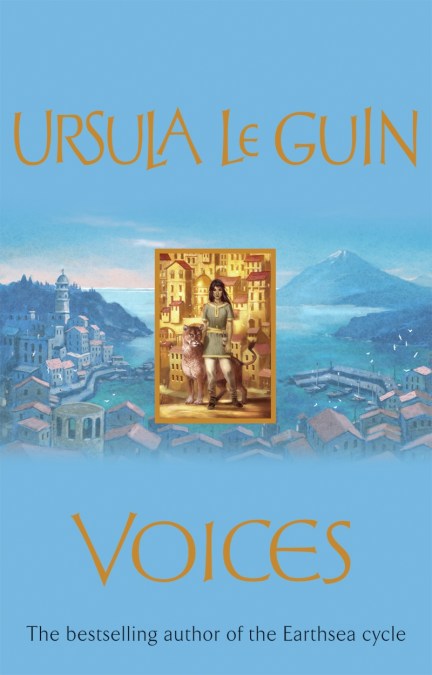Memer is a child of rape; when the Alds took the beautiful city of Ansul, they descecrated or destroyed everything of beauty. The Waylord they imprisoned and tortured for years until finally he is freed to return to his home. Though crippled, he is not destroyed. His life still has purpose. Memer is the daughter of his House, the daughter of his heart.
The Alds, a people who love war, cannot and will not read: they believe that in words lie demons that will destroy the world. All the city’s libraries, the great treasure trove of knowledge of ages past, are burned, except for those few volumes secreted inthe Waylord’s hidden room.
But times are changing. Gry Barre of Roddmant and Orrec Caspro of Caspromant have arrived in the city. Orrec is a story-teller, the most famous of all: he has the gift of making. His wife Gry’s gift is that of calling; she walks with a halflion who both frightens and fascinates the Alds.
This is Memer’s story, and Gry’s and Orrec’s, and it is the story of a conquered people craving freedom.
The Alds, a people who love war, cannot and will not read: they believe that in words lie demons that will destroy the world. All the city’s libraries, the great treasure trove of knowledge of ages past, are burned, except for those few volumes secreted inthe Waylord’s hidden room.
But times are changing. Gry Barre of Roddmant and Orrec Caspro of Caspromant have arrived in the city. Orrec is a story-teller, the most famous of all: he has the gift of making. His wife Gry’s gift is that of calling; she walks with a halflion who both frightens and fascinates the Alds.
This is Memer’s story, and Gry’s and Orrec’s, and it is the story of a conquered people craving freedom.
Newsletter Signup
By clicking ‘Sign Up,’ I acknowledge that I have read and agree to Hachette Book Group’s Privacy Policy and Terms of Use
Reviews
No question about her literary quality: her graceful prose, carefully thought-through premises, psychological insight and intelligent perception
Barbarians-versus-brainiacs may be well-trod turf, but Le Guin sure-footedly makes it new. She creates a protagonist with obvious appeal to her intended audience: a geeky girl with bad hair but a quick intelligence, who nurses a seething contempt for the illiterate thugs who run everything
Le Guin is a writer of phenomenal power
As always, Le Guin's language is as airy and sensuous as her concerns are weighty and abstract, every sentence as precise as a spade cut
Le Guin's crystalline prose and her ability to dramatise political and spiritual issues of our time are unequalled

